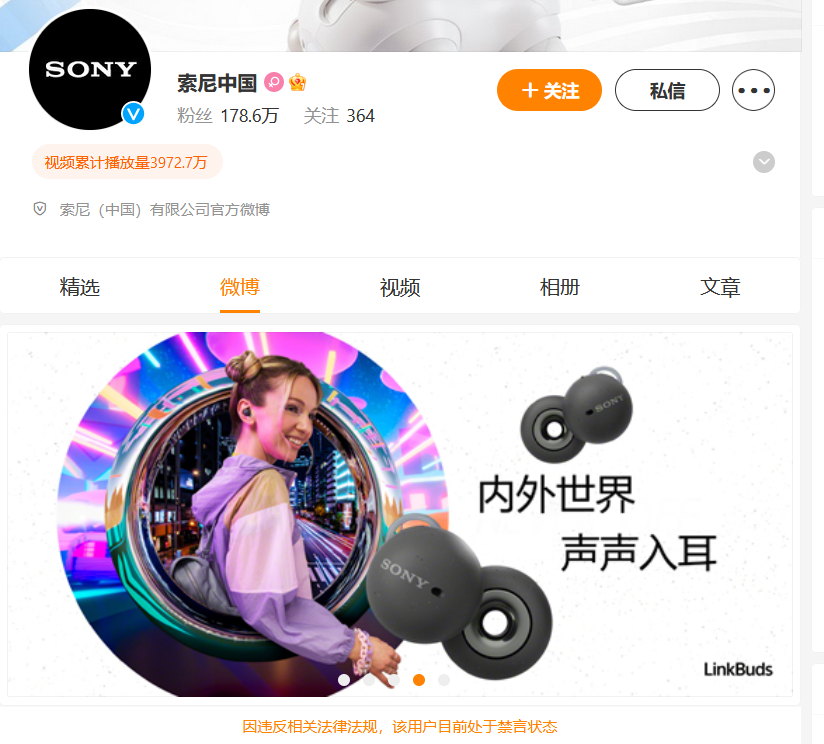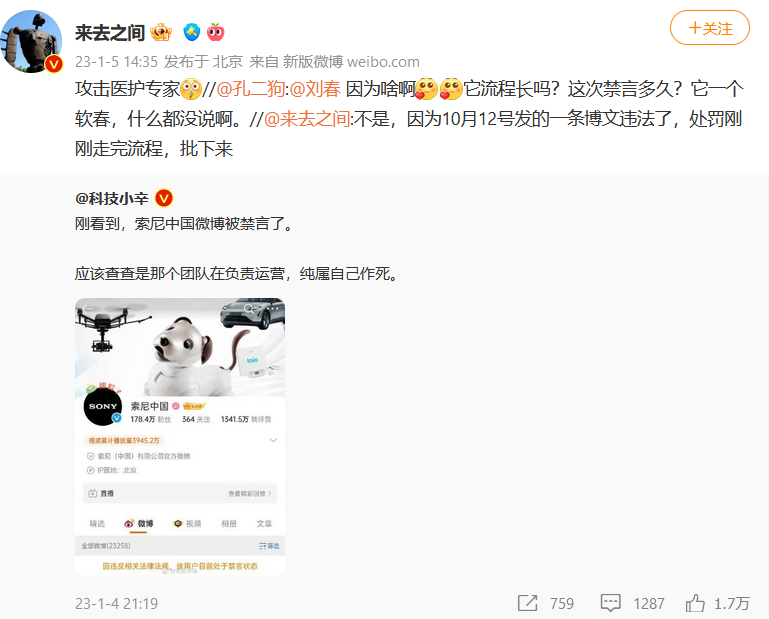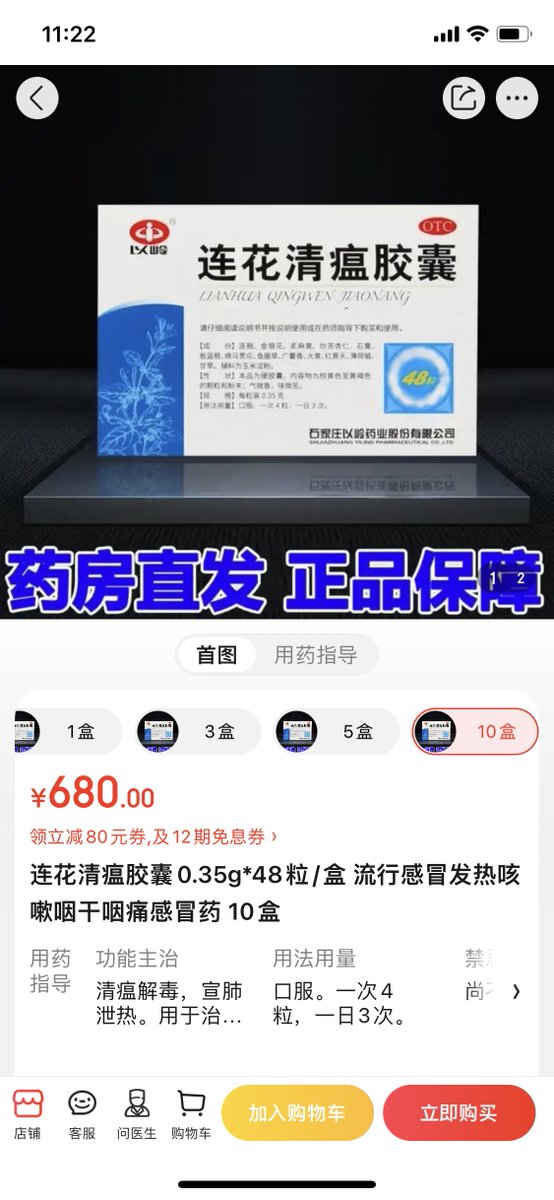1/ THREAD: The @WSJ ran checks on China's most popular social media platforms in the weeks before the Party Congress, searching for the names of Chinese leader Xi, the standing committee members and its 31 provincial and region Party chiefs. Here's what we found:
@WSJ 2/ We analysed Douyin (China's TikTok), Weibo, Baidu's online forum Tieba, the Quora-like Zhihu (知乎)and searched for WeChat blogs using the Sogou search tool.
3/ In his 10 years in power, Xi presided over a boom in censorship that has muzzled online debate in entirely new ways. Influencers with dissenting views silenced, new laws limit online speech, and companies are fined for not policing web content.
Still, the results were a shock.
Still, the results were a shock.
4/ Weibo (1): Weibo doesn't allow users without a Chinese cellphone number (no overseas users) to even search for Xi Jinping's name in the app. You need to register and log-in with a Chinese number (linked to your ID) to do so.
5/ Weibo (2): Results are almost all articles or videos in some way linked to state media or government agencies. No surprise.. EXCEPT, the comments are also hidden from view... this post has 366 comments but only 3 are viewable. 
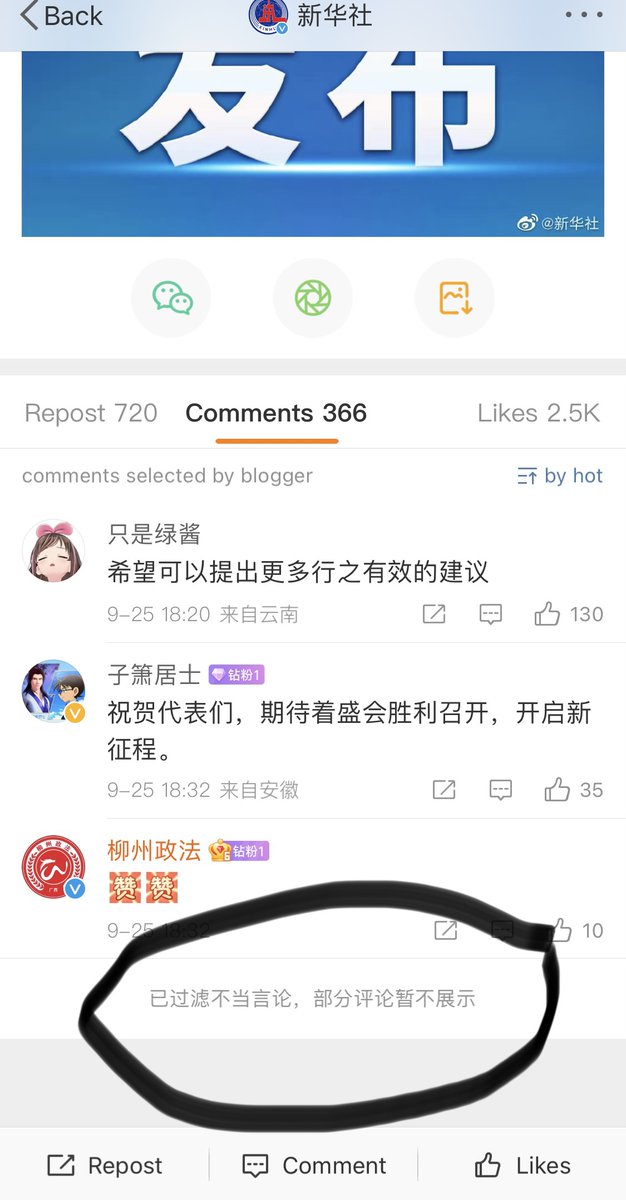
6/ Weibo (3): Other posts on state media mentioning Xi Jinping or Li Keqiang don't even bother. They've shut off the comment function or hide them. 



7/ When you try and search on Baidu's online forum Tieba for Chinese President Xi Jinping, its a blank slate. Up pops a message: 抱歉,根据相关法律法规和政策,相关结果不予展现。"Sorry, according to related laws and policies, the results cannot be shown." 

8/ Baidu Tieba: Chinese netizens get the same reply when they search for anyone else on the Standing Committee: Li Keqiang, Han Zheng, Li Zhanshu, Wang Yang, Wang Huning, Zhao Leji. Other politicians with similar levels of censorship include Xinjiang Party chief 马兴瑞. 

9/ Baidu Tieba: The true irony is that Chinese internet users can discuss U.S. politicians such as President Biden much more freely. Compare the zero results of Chinese leader Xi to 184,000 comments on Biden, with opinions ranging from respect to disgust. 

10/ Same scenario when it came to Sogou's WeChat search portal (a common way to browse WeChat blog posts). Searching ‘Yang Jiechi,' China's pointman on foreign affairs, returned the result: 呀!没有找到相关的微信公众号文章 (Ya! No related official WeChat posts found) 

11/ Looking for Yang Jiechi's U.S. counterpart Antony Blinken delivers 1,000 WeChat posts.
Yang = 0 posts.
Blinken = 1,000.
#censorship
Yang = 0 posts.
Blinken = 1,000.
#censorship
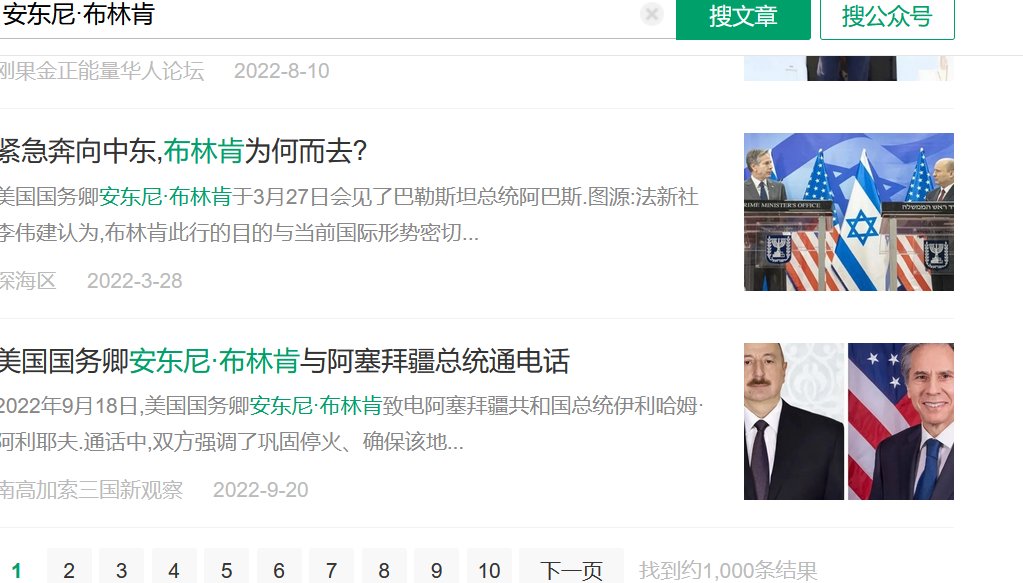
12/ Douyin takes 1st prize for censorship, boot-licking. For Xi, you only find videos from state/Party media. Lots of CCTV discussing Xi’s trips to the hinterland. I found this gem of an account: “Foreign Affairs Thinktank” with “golden thoughts from Xi.” 1 mln followers… hmmm🤔 

13/ Keep in mind Douyin’s global counterpart TikTok, run by the same parent company Bytedance, is filled with user-generated memes and spoofs of leaders such as Biden and Putin. No such thing in China.
14/ Even searches for public sentiment about Mr. Xi’s wife, Peng Liyuan, a famous folk singer in her own right, yield nothing on most platforms. A close analogy would be Google censoring results for Melania Trump or Michelle Obama.
15/ Wechat is the worst censorship offender: and the #sitongbridge incident is the most recent example. Large numbers of Chinese lost access to the ubitquitous chat messaging app after sharing a photo of a rare protest act in Beijing ahead of the Congress.
https://twitter.com/JChengWSJ/status/1581117975708327936?s=20
16/ I spoke to WeChat users who were banned forever from their account as they had shared this picture. In the past, Wechat would suspend you for a day or a week over politically sensitive topics, but not this time. With this incident, it was a complete ban for all who shared. 

17/ I turned to Telegram to chat with one user to avoid being surveilled. But after a few mins, the state interference made it almost impossible to chat. They didn't cut my call directly, but made the line so broken you heard bits and bobs, and you constantly heard yourself echo.
18/ In China, where independent opinion polls are almost nonexistent, social media has been a way to gauge people’s opinions, even under censorship. But the online scrubbing highlights how difficult it is to figure out how popular is China’s most forceful leader since Mao.
19/ It's also tough to assess support for his policies. A Zhihu post on a speech by Mr. Xi to the People’s Liberation Army in which he called for “the motherland to be unified”—a reference to taking control of Taiwan, appeared to have attracted 219 comments. None could be viewed. 



20/ Because China has blocked out a lot of foreign news websites and information sources, there is little to balance the steady stream of state-television anchors or Foreign Ministry spokespeople waxing lyrical about Mr. Xi, or footage of him being cheered by crowds on visits.
21/ How have things tightened under Xi? Our checks show there is zero public discussion on senior politicians now. Compare that to 2011 (pre-Xi), when Zhang Dejiang, a former vice premier was pummeled by social media users for negligence after the Wenzhou high speed rail crash.
22/ In 2011, there was censorship of Hu Jintao and Wen Jiabao too. But users got around it by using creative nicknames. Under Xi... Xiaohongshu banned 564 nicknames for Xi in 2 months, including “Adolf Xi-tler”. via @CDT @EricLiu_USA chinadigitaltimes.net/2022/07/list-o…
23/ Lets not forget Xi introduced the "Heroes & Martyrs Law" criminalizing slander of Party heroes in order to control its version of history. And the fines against content platforms have grown huge. Weibo was fined about $2.6 mln in 2021 over content. edition.cnn.com/2021/12/14/tec…
Researchers say the censorship is worse this time becos Xi is pursuing a precedent-breaking 3rd term. Still, the censoring could backfire by obscuring Chinese leaders’ understanding of citizen needs & gripes, particularly with the lack of democratic institutions like a free press
25/ The one thing I did gleam from my research was who the next upcoming heavyweights might possibly be :) 陈敏尔, the Chongqing party chief, was the most heavily censored on all the platforms I searched. With censorship akin to Standing Committee members. Rising star maybe?
Last/ Read our WSJ story: wsj.com/articles/what-…
• • •
Missing some Tweet in this thread? You can try to
force a refresh


